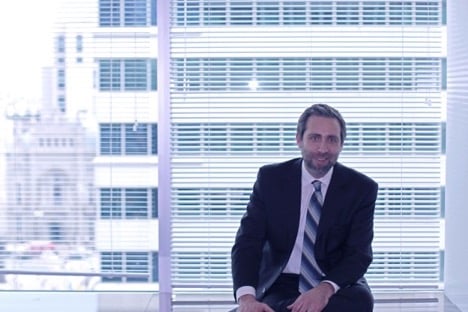


Requirements
and Restrictions
Learning Work?
or Live Event
Abraham Rein Brings Supreme Court Experience to Kline School
 Getting a case to the Supreme Court is kind of a big deal. Out of about 7,000 requests per year, the Supreme Court only hears around 80 of those. So it’s not every day you run into someone who’s actually worked on a Supreme Court case. Unless you’re a Drexel student, that is.
Getting a case to the Supreme Court is kind of a big deal. Out of about 7,000 requests per year, the Supreme Court only hears around 80 of those. So it’s not every day you run into someone who’s actually worked on a Supreme Court case. Unless you’re a Drexel student, that is.
Enter Abraham Rein, an instructor for Drexel University Kline School of Law’s new online Master of Legal Studies and certificate program in Cybersecurity and Information Privacy Compliance. Rein is a former web developer who was working as an attorney at Post & Schell, P.C. when his boss, Ron Levine, was appointed to take on a social media-related case. Knowing that Rein had a background in technology, Levine brought him onboard.
That case was Elonis v. the United States. The 3rd U.S. Circuit Court of Appeals upheld the defendant’s conviction for threatening his wife and others after posting violent, original rap lyrics to his Facebook page. However, Elonis maintained that the lyrics were just a form of artistic expression, similar to lyrics by popular rappers like Eminem, and not actual threats. The case was taken to the Supreme Court, where his conviction was overturned and sent back to the lower courts. The 3rd Circuit once again affirmed his conviction, and his legal team (including Rein) is currently petitioning the Supreme Court to take the case again.
Rein has been working on this case since October 2012 (a typical case wraps up much more quickly than that). After their client’s conviction was initially upheld in the 3rd Circuit, the team was contacted by a Supreme Court advocate named John Elwood from a firm called Vinson & Elkins in Washington, D.C. who offered to help them prepare a petition for certiorari (a legal petition) for the Supreme Court.
“I think [the case] was getting some publicity…because it had to do with Facebook and a lot of the communications at issue in the case were in the form of Eminem-style rap lyrics. It just sort of had a ‘sexiness’ to it,” Rein said of why he thinks the firm approached his team. “Sexy” or not, the case was a standout for another reason as well.
Elonis v. the United States is one of the first cases involving social media to be heard by the Supreme Court, helping usher in a new age of lawsuits.
“I think this case makes it clear that the Supreme Court recognizes social media and the internet as a modern form of communication,” Rein said. “Hopefully, I think it shows the Supreme Court is aware that social media and the internet have their own new set of problems that weren’t present with traditional communication. And so I do think we’ll see more and more cases involving social media make their way to the Supreme Court.”
According to Rein, following a case all the way to the country's highest court is the ultimate fulfillment of a law school student’s dream.
“It was unbelievable. It’s hard to describe how exciting it was. It was awesome,” Rein said. “I have this great memory of when we walked into the room and sat down at the council table and my boss leaning over to me, who’s a very experienced criminal defense lawyer and has been around the block a few times, just saying, ‘Abe, soak this up.’”
More than that, though, the case was a unique opportunity for Rein to combine two of his passions: technology and law.
“I was a web developer for a long time before I was a lawyer, so it was great to have a big case that involved the internet and interesting legal concepts, like how do old laws apply to this new medium, and have it go all the way to the Supreme Court,” he said.
So how does Elonis v. the United States compare to the other cases Rein’s worked on in his career?
“It’s clearly up there among the most interesting, and the coolest,” Rein laughed.

© All Rights Reserved
